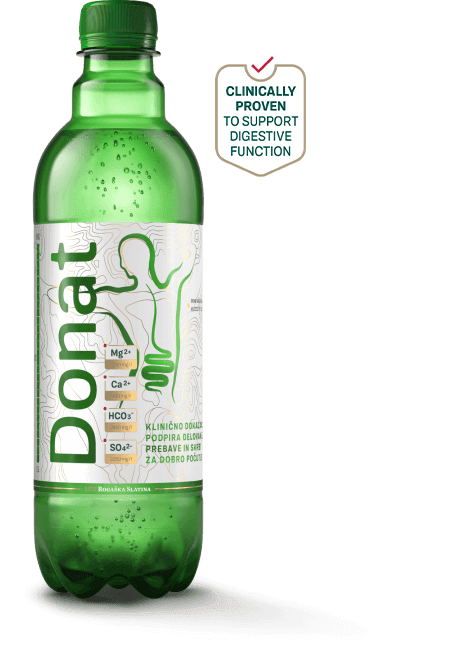The quarantine measures currently being observed throughout the world, and the consequences of these measures, naturally also have an affect on people’s mental health. One of the fundamental medical needs that cannot currently be satisfied in the majority of patients is the treatment of depression.
Magnesium is one of the essential nutrients, yet the majority of the world’s population is magnesium deficient. This is related to the processing of foodstuffs, in particular cereal products, yet low magnesium levels are harmful to the brain and can cause mood disorders. A lack of magnesium reduces the level of serotonin, which leads to depressive states. Thirty-six per cent of all noncommunicable diseases are nervous or mental disorders (WHO Report, 2004). Magnesium deficiency has a significant impact on quality of life, since it causes gloominess and lack of energy and at the same time affects appetite and digestion, causes sleep disorders and triggers feelings of guilt and sadness. Many of the medical preparations used to treat depression have powerful side effects and are poorly tolerated by patients.

Today we know that food influences the structure of the brain and brain function, including cognitive perception, mood and intellectual development. Magnesium affects all fundamental metabolic processes in reduction–oxidation and ionic regulation. In the case of mood disturbances, there is a consistent reduction of dietary magnesium intake (Seelig in Rosanoff, 2003). This is connected to the processing of cereals, a diet containing low amounts of rice and wheat bran, nuts, seeds, leafy green vegetables and chocolate, and the total removal of minerals from drinking water via distillation, reverse osmosis, etc. Research (Jacka et al., 2009) has confirmed the epidemiological connection between a low dietary intake of magnesium and the risk of depression. Magnesium deficiency is quite hard to diagnose, since a lack of this mineral in plasma is not a reliable indication of deficiency. The level of magnesium in tissue is a more significant indicator (Mann and Trustwell, 2002). During times of stress, in particular in this period in which all of us are in isolation because of conditions relating to COVID-19, the functioning of the sympathetic nervous system is considerably strengthened, and therefore magnesium secretion increases. A dose of between 600 and 800 mg/day (except in the form of magnesium oxide) can become a general preventive measure. Drinking a 300 ml glass of Donat medicinal mineral water each day before going to bed, for example, can meet half the organism’s daily magnesium needs without any side effects or dependence (Bothe G., Čoh A., Auinger A., 2015). Help yourself and those dear to you!

References
- World Health Report 2004: Changing History Annex Table 3: Burden of disease in DALYs by cause, sex and mortality stratum in WHO regions estimates for 2002. Geneva, The World Health Organization.
- Seelig M.S., Rosanoff A. The Magnesium Factor. New York, NY Avery Publishing Group, 2003, P. 5.
- Jacka F.N., Overland S., Stewart R., Tell G.S., Bjelland I., Mykletun A. Association between magnesium intake and depression and anxiety in community-dwelling adults: the Hordaland Health Study. Aust NZ J Psychiatry, 2009, I. 43, P. 45–52.
- Mann J., Truswell A.S. Essentials of Human Nutrition. 2nd ed. New York, NY, Oxford University Press, 2002, P. 141.
- Bothe G., Coh A., Auinger A. Efficacy and safety of a natural mineral water rich in magnesium and sulphate for bowel function: a double-blind, randomized, placebocontrolled study. Eur J Nutr 2015. (http://link.springer. com/article/10.1007%2Fs00394-015-1094-8)
Choose chapter:






